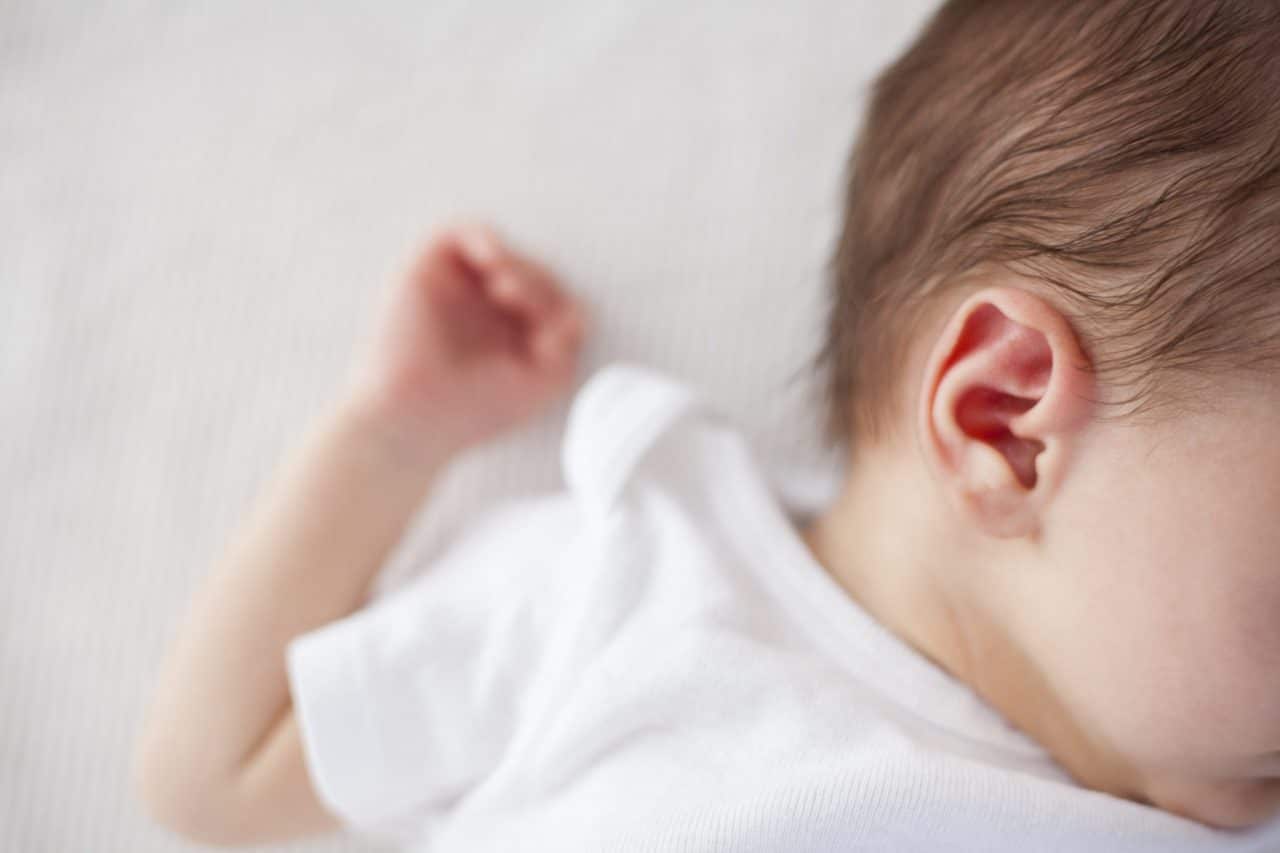Hearing loss isn’t confined to older adults: children of all ages can experience a loss of hearing. Roughly three out of 1000 babies are born with hearing loss, and its prevalence is increasing in adolescents. Noise-induced hearing loss is largely responsible for this increase.
Hearing Loss in Newborns

Hearing loss is the most common birth defect, with two to three out of one thousand babies born with a hearing impairment. It’s important to catch this early, as hearing plays a crucial role in a child’s social and emotional development, and is key to their speech and language skills.
All hospitals screen a newborn’s hearing shortly after birth. Up to 10 percent of infants do not pass the initial hearing test. Follow-up testing can confirm whether your baby truly has a hearing loss.
What Are the Causes of Newborn Hearing Loss?
While most babies are born with normal hearing, there are some who do have a hearing loss at birth, or develop one early in childhood. Risk factors include:
- Premature birth or other complications.
- Family history of hearing loss.
- Infections such as meningitis or cytomegalovirus.
The earlier you catch your child’s hearing loss, the better. Babies rely on their hearing right from the start in order to develop speech and language skills. Left untreated, a hearing loss can lead to delays in language development and social coping skills. If there is a problem, early detection can prevent many of these issues, and put your child on the proper track for learning.
Signs of Hearing Loss in a Newborn
Newborn hearing loss sometimes develops shortly after birth. Even if your child passes the initial hearing screening, these signs and symptoms may indicate a hearing impairment:
- Failure to startle when exposed to a sudden, loud noise.
- No recognition or response to your voice.
- Inattentiveness.
- Difficulty learning.
Infant Hearing Loss Treatment
Treatment depends upon the type and extent of hearing loss your child is experiencing. Hearing aids, assistive listening devices, or cochlear implants are all commonly used to treat hearing loss. Your child’s audiologist is best qualified to make a recommendation based on his or her unique situation.
If you suspect your child is having difficulty hearing, seek medical attention as soon as possible. Delaying can have a strong effect on a child’s learning and development.
Hearing Loss in Children
Hearing loss can affect children of all ages, and can impact a child’s speech development, social skills, learning, and more. If your child shows signs of hearing loss, an experienced audiologist can do further testing to determine whether or not hearing loss is present and which treatment options are available.

What Causes Hearing Loss in Children?
There are three main causes of hearing loss in children. Congenital factors contribute to children who are born with hearing problems because of genetic issues, prenatal problems, or premature birth.
Otitis media (ear infection) is a very common childhood ailment that occurs when fluid accumulates in the middle ear. This can cause difficulty hearing and, in severe cases, may lead to permanent hearing damage. Acquired hearing loss is triggered by illnesses, physical trauma, exposure to loud noises, and medications.
What Are the Symptoms of Hearing Loss in Children?
How can you tell if your child might have a hearing loss? There are a number of signs that should prompt you to have your child’s hearing evaluated ASAP. These include:
- A delay in speech and language.
- Failure to respond to loud noises or your voice.
- Poor academic performance.
- Frequent ear infections.
- Disorders associated with hearing loss (i.e., Down syndrome or autism).
- Family history of hearing loss.
Treating Pediatric Hearing Loss
There are numerous options for treating hearing loss in children, depending upon the type and severity of their condition. Your child’s doctor may take a wait-and-see approach when it comes to otitis media; chronic cases may be treated with medications or ear tubes that are inserted surgically and allow fluid to drain from the ears.
Permanent hearing loss can be treated with hearing aids, cochlear implants, and other hearing devices that enable a child to communicate.
The earlier you act, the less chance of your child experiencing speech of learning difficulties as the result of a hearing impairment.
Call Columbus Speech and Hearing at (614) 263-5151 for more information or to schedule an appointment.